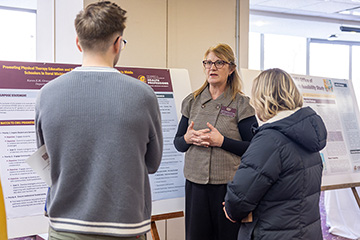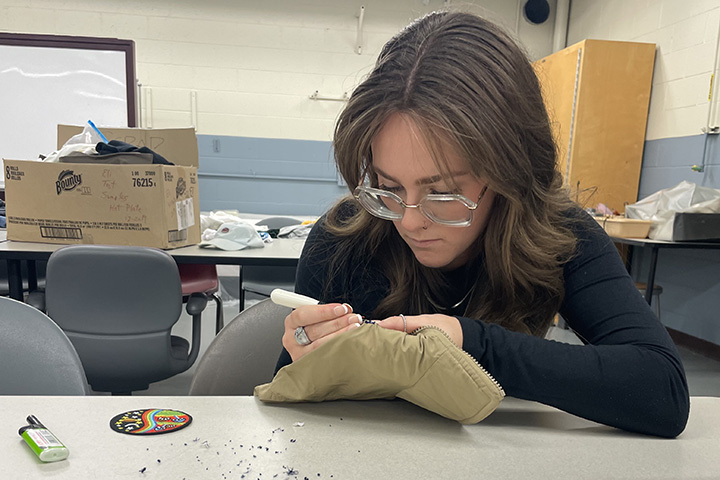Faculty, students team up for infertility research
Jennifer Schisa, Ph.D., received a grant from the National Institutes of Health and the United States Department for Health and Human Services to research RNA binding in immature eggs.
Jennifer Schisa, Ph.D., a professor in the biology department, received a grant from the National Institutes for Health (NIH) and the United States Department for Health and Human Services for her project ERK-Medicated Regulation of RNA Binding Protein Condensation During Female Germ. This is the fifth grant Schisa’s lab has received from the NIH since 2006.
This 3-year-long research project looks into ways to allow oocytes, or immature eggs, to maintain their viability throughout development. In human ovaries, there is mRNA inside of the developing oocytes long before the actual fertilization of the egg. This mRNA is necessary for oocyte growth and the development of the embryo; however, unregulated mRNA has the potential of leading to birth defects and infertility.
When the mRNA is unregulated, granules of RNA can form, ultimately leading to infertility. Schisa’s research studies the use of a protein to regulate the granule formation in oocytes. This research is done on C. elegans, or roundworms, and will provide an understanding of mRNA that can be used to maintain egg quality.
Schisa prides herself on having an educationally innovative lab, as this research allows several student researchers to get involved, and integrates genetics, cell biology, and microscopy. This research will be done with a team of 2 Ph.D. students, 2 masters’ students, and at least 9 undergraduate students, allowing opportunities for students to present their work and co-author research articles.
“We know getting students involved in cutting-edge research has many positive outcomes,” said Schisa. “Our results will provide a foundation for future biochemical studies so we can eventually design novel interventions for infertility.”
This story is brought to you by the Office of Research and Graduate Studies.




